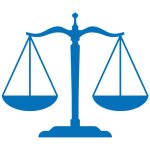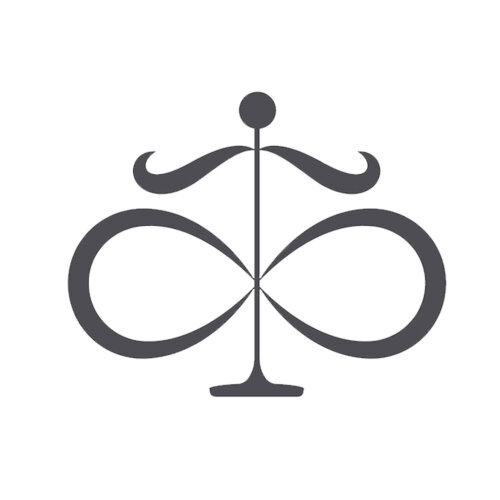Best Structured Finance Lawyers in Dakar
Share your needs with us, get contacted by law firms.
Free. Takes 2 min.
List of the best lawyers in Dakar, Senegal
About Structured Finance Law in Dakar, Senegal
Structured Finance is a specialized area of finance used to manage risk, raise capital, and facilitate complex financial transactions for large projects and organizations. In Dakar, Senegal, Structured Finance plays a critical role in sectors such as infrastructure, energy, real estate, and trade. It often involves the use of tailored financial instruments such as securitizations, asset-backed securities, and syndicated loans to address unique funding requirements and risk profiles.
Senegal, as a leading economy in West Africa, attracts foreign and local investment for major projects. The legal environment for Structured Finance in Dakar is influenced by national laws and regional regulations, notably the rules established by the West African Economic and Monetary Union (WAEMU) and the Organization for the Harmonization of Business Law in Africa (OHADA). Navigating these legal frameworks is essential for successful Structured Finance transactions in the city.
Why You May Need a Lawyer
Structured Finance transactions involve complex financial arrangements and legal documentation. Here are some common scenarios where hiring a lawyer specializing in Structured Finance in Dakar may be crucial:
- Negotiating and drafting legal agreements for project finance, securitizations, or asset-backed structures.
- Advising on risk mitigation and compliance with regulatory requirements.
- Structuring transactions to optimize tax efficiencies and protect assets.
- Facilitating cross-border deals that involve Senegalese and international entities.
- Resolving disputes or addressing defaults in high-value financing arrangements.
- Ensuring that all documentation complies with local, regional, and international laws.
Given the intricacies involved, legal expertise ensures your financial interests are protected and that transactions proceed smoothly within the regulatory framework.
Local Laws Overview
Structured Finance in Dakar is governed by a mix of national legislation and regional regulations. Some of the most relevant legal frameworks include:
- OHADA Uniform Acts: OHADA has established a set of uniform business laws for member states, including Senegal. These laws cover commercial companies, secured transactions, insolvency, and enforcement of security interests.
- WAEMU (UEMOA) Regulations: WAEMU harmonizes banking and financial sector regulation for West African countries, influencing structured financial instruments and cross-border capital flows.
- Local Banking and Financial Services Law: Senegal has enacted banking laws and regulations under the supervision of the Central Bank of West African States (BCEAO), governing lending, credit, and collateral arrangements.
- Tax Legislation: Senegal’s tax laws, including those covering value-added tax (VAT) and withholding tax, impact the structuring and profitability of finance deals.
- Foreign Exchange Controls: Rules apply to cross-border financial flows and must be complied with for transactions involving foreign parties or currencies.
Compliance with these laws is crucial to avoid penalties and ensure the enforceability of financial agreements in Dakar.
Frequently Asked Questions
What is Structured Finance?
Structured Finance refers to financial arrangements that use complex instruments to manage risk, secure funding, and meet unique transactional needs, typically for major projects or organizations.
Which industries in Dakar use Structured Finance most?
Structured Finance is commonly used in sectors like infrastructure, energy, telecommunications, real estate development, and major trade ventures.
Are foreign investors allowed to engage in Structured Finance in Dakar?
Yes, foreign investors can participate in Structured Finance transactions, but they must comply with Senegal’s laws, WAEMU regulations, and any foreign exchange rules.
How does OHADA law affect Structured Finance?
OHADA law provides a unified legal framework for commercial activities, including guarantees, security interests, and debt recovery, which are central to Structured Finance in Senegal.
What types of collateral can be used in Structured Finance?
Common forms of collateral include real estate, equipment, future cash flows, receivables, and sometimes shares in project companies or special purpose vehicles.
Is court approval required for Structured Finance transactions?
Generally, court approval is not required for establishing Structured Finance deals, but legal documentation must comply with law, and court intervention may be needed in case of enforcement or dispute.
What are the tax implications of Structured Finance transactions?
Tax implications can be significant and may include VAT, withholding tax, and stamp duty, depending on the transaction structure and assets involved.
Can Structured Finance help public sector projects?
Yes, government and public-private partnership (PPP) projects in Dakar often use Structured Finance to leverage private sector capital and expertise.
What legal risks are involved in Structured Finance?
Potential risks include non-compliance with regulations, unenforceability of contracts, tax disputes, and unforeseen changes in law or economic conditions.
How do I find a Structured Finance lawyer in Dakar?
You can search for law firms specializing in financial or commercial law in Dakar, consult professional legal associations, or seek referrals from banks and financial advisors.
Additional Resources
For individuals or companies seeking information or assistance on Structured Finance in Dakar, the following resources may be helpful:
- Central Bank of West African States (BCEAO): Supervises banking regulation and provides information on financial sector laws.
- OHADA Official Resources: Offers guides and updates on business law applicable in Senegal and other member states.
- Senegalese Ministry of Economy, Finance and Planning: Issues regulations and policy documents related to finance and investment.
- Chamber of Commerce, Industry, and Agriculture of Dakar: Provides support and guidance for businesses, including access to legal professionals.
- Professional Legal Associations: Senegalese Bar Association and other local bodies can refer qualified lawyers in Structured Finance.
Next Steps
If you require legal advice or representation for Structured Finance matters in Dakar, consider these steps:
- Assess your needs and gather all relevant documents related to your project or transaction.
- Contact a specialized lawyer or law firm with experience in Structured Finance and familiarity with OHADA and Senegalese regulations.
- Arrange an initial consultation to discuss your objectives, legal options, and associated risks or benefits.
- Request a clear fee structure and discuss timelines for your project or transaction.
- Stay informed and engaged throughout the process to ensure compliance and successful transaction completion.
A knowledgeable legal advisor will help guide you through the complexities of Structured Finance to protect your interests and facilitate your business goals in Dakar, Senegal.
Lawzana helps you find the best lawyers and law firms in Dakar through a curated and pre-screened list of qualified legal professionals. Our platform offers rankings and detailed profiles of attorneys and law firms, allowing you to compare based on practice areas, including Structured Finance, experience, and client feedback.
Each profile includes a description of the firm's areas of practice, client reviews, team members and partners, year of establishment, spoken languages, office locations, contact information, social media presence, and any published articles or resources. Most firms on our platform speak English and are experienced in both local and international legal matters.
Get a quote from top-rated law firms in Dakar, Senegal — quickly, securely, and without unnecessary hassle.
Disclaimer:
The information provided on this page is for general informational purposes only and does not constitute legal advice. While we strive to ensure the accuracy and relevance of the content, legal information may change over time, and interpretations of the law can vary. You should always consult with a qualified legal professional for advice specific to your situation.
We disclaim all liability for actions taken or not taken based on the content of this page. If you believe any information is incorrect or outdated, please contact us, and we will review and update it where appropriate.









